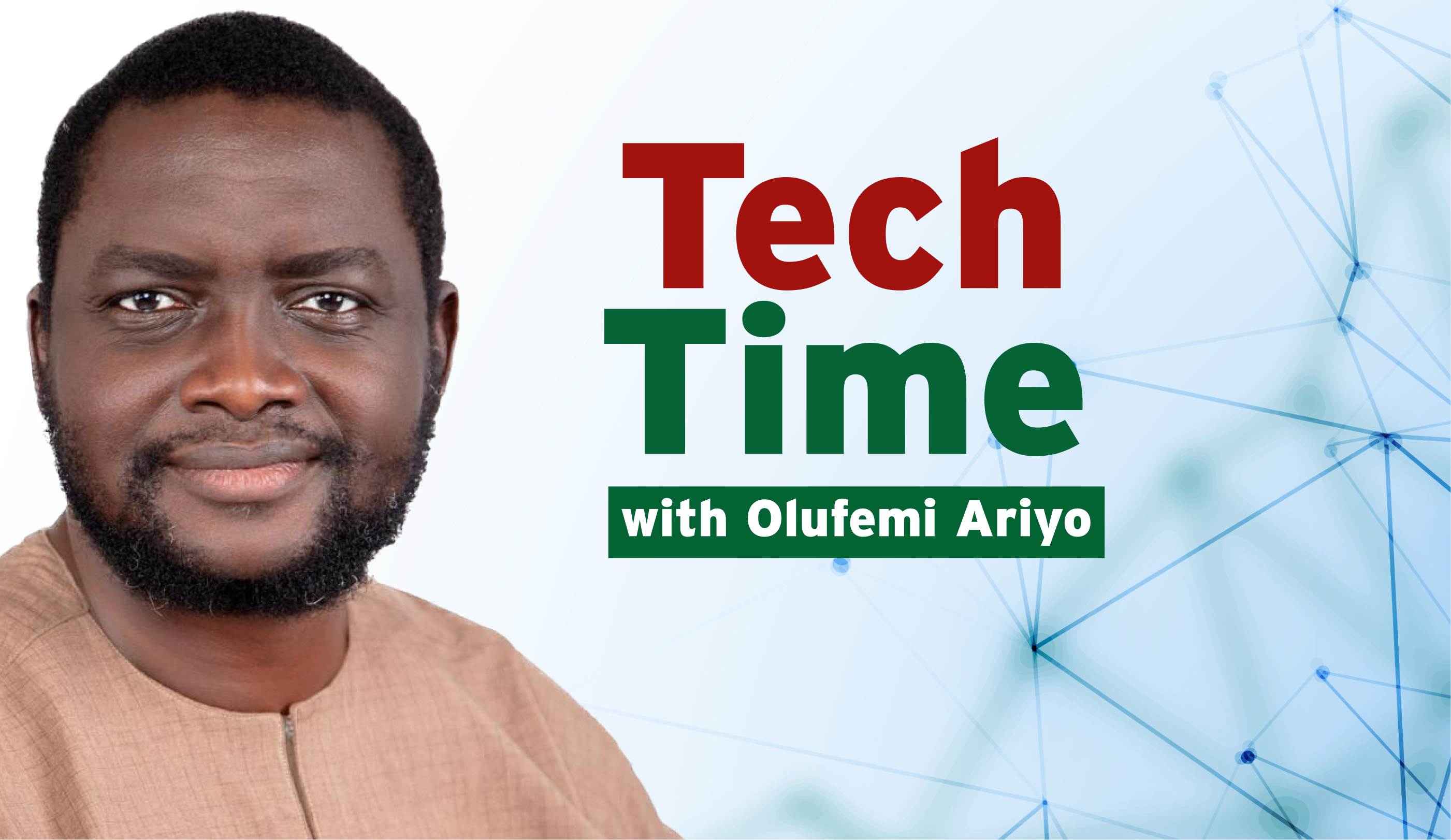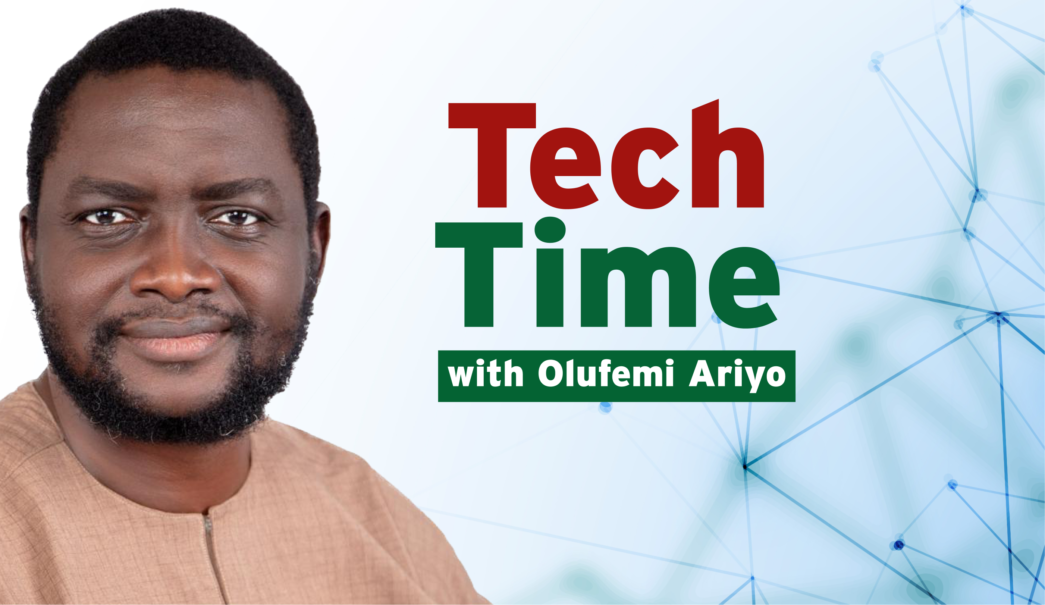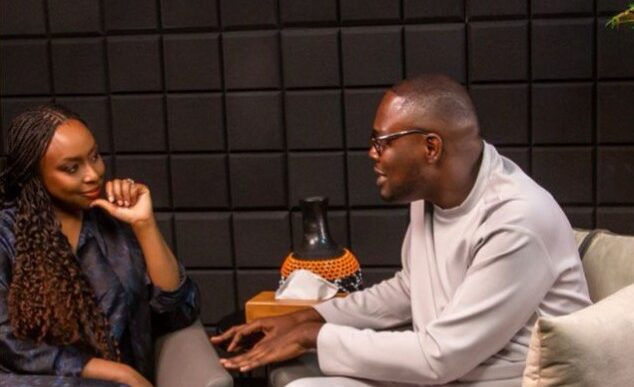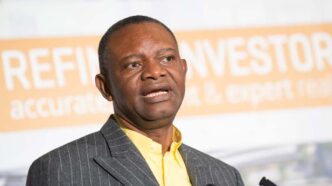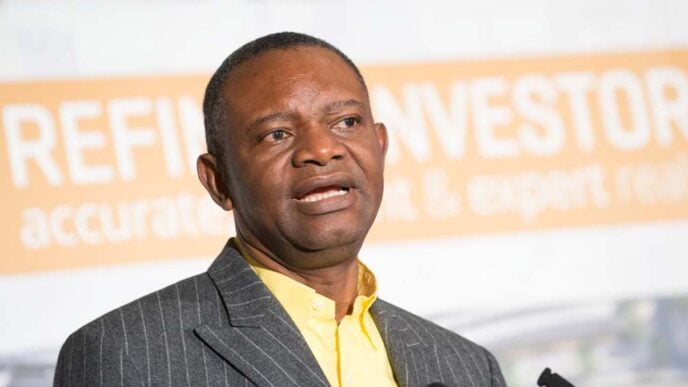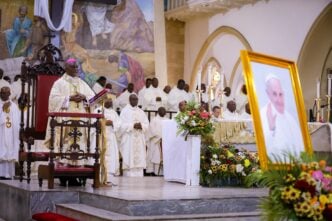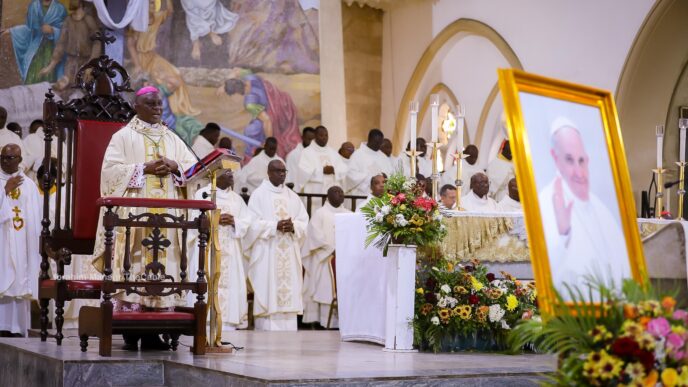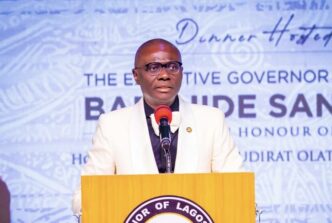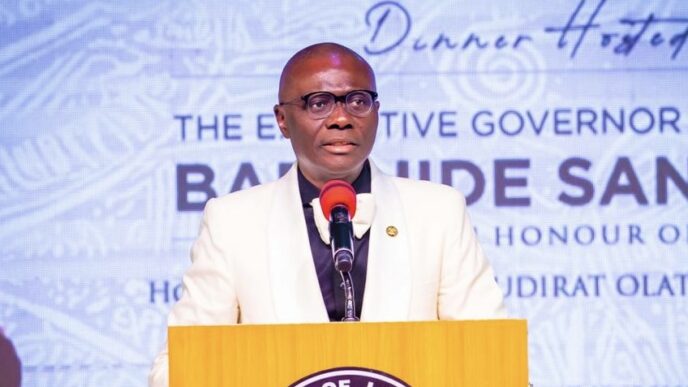The world was not forged by weapons, nor was it shaped by wealth. Its foundations were laid by words. From the quiet visions of prophets to the thunderous cries of revolutionaries, it is courageous, purpose-driven speech that has always sculpted the course of history. Words — yes, action-backed words — have launched movements, ended empires, and reimagined nations. They have summoned unity from division and stirred hope in moments of despair. But today, a new force joins this ancient one: technology. In the digital age, words no longer need grand halls or global platforms to echo — a smartphone and a signal are now enough to set change in motion. Viral tweets can expose injustice. A well-aimed hashtag can mobilise millions. Livestreams can turn silence into spectacle. Artificial intelligence can scale solutions and democratise access to education, justice, and innovation. We live in a time where words and code are twin engines of transformation.
And yet, despite these tools, Nigeria stands once more at a pivotal crossroads — brimming with potential, yet burdened by the weight of persistent misgovernance and fractured leadership. The crisis is not only institutional but existential — a quiet erosion of the stories we tell ourselves about who we are and what we can become.
In such a moment, we must ask: Where are the words that will stir us from apathy? Where is the technology being wielded to amplify truth, not distort it? Where are the voices bold enough to craft a new narrative for a nation in search of itself — and the tools sharp enough to build that vision into reality?
Look to Burkina Faso: A Nation Reimagining Itself
Advertisement
When Ibrahim Traoré, a young and relatively unknown military captain, rose to power in Burkina Faso in 2022, much of the world responded with skepticism or dismissal. Could a man in his early thirties — without decades of political experience or a vast international support network — truly steer a broken, embattled nation toward renewal? The country had endured coups, insurgencies, and the suffocating grip of foreign influence. It was easy to write off Traoré as just another soldier-turned-statesman in a long line of African strongmen.
But what followed confounded expectations. Traoré did not seek legitimacy through hollow gestures or approval. He did not wrap himself in vague promises or tired political jargon. Instead, he wielded something far more potent: clarity of purpose and fearless, unflinching rhetoric. He spoke not in the sanitised language of diplomacy, but in the raw, defiant tone of a generation fed up with neocolonial subservience and elite betrayal.
Moreover, he named the enemy: neocolonialism — political and economic systems designed to keep African nations dependent and directionless. He named the goal: sovereignty — not just in borders, but in thought, in policy, in pride, and in infrastructure. And he named the people: not as passive subjects, but as the very soul and engine of the revolution. His speeches, often unscripted and unvarnished, did not cater to international audiences or global press conferences. They were forged in the fire of local disillusionment and ancestral memory. And yet, they traveled — fast and wide. Through WhatsApp groups, YouTube clips, and Twitter threads, his words were amplified across the continent, echoing through dusty streets and digital networks alike. For a generation raised as much on smartphones as on history books, Traoré’s voice became a rallying cry — not just for political change, but for digital awakening.
Advertisement
Technology became more than a communication tool — it became a strategy. Social media bypassed traditional gatekeepers. Encrypted apps enabled grassroots coordination. Online platforms served as alternative parliaments where the youth could debate, organise, and mobilise. In Burkina Faso, the revolution was not televised — it was uploaded, streamed, and shared.
He drew from Sankara’s legacy, yes, but he also extended it — not just ideologically, but technologically. Traoré’s vision was not just about reclaiming land or reforming policy; it was about reimagining power in a connected world. Sovereignty, in his era, must include data independence, cybersecurity, digital literacy, and the use of tech to disrupt corruption and opacity. His revolution is as much about fibre optic cables as it is about freedom fighters.
Of course, Burkina Faso’s challenges remain daunting. The threat of violence is still real, and rebuilding institutions will not happen overnight. But there is no denying what is already underway: the birth of a new national psyche. One that is unafraid to sever dependency. One that no longer apologises for its desire to chart its own path. One led by a man who understands that leadership begins not with military might or economic muscle, but with language — and now, with bandwidth. Honest, defiant, and visionary language that dares to imagine differently — and speak and stream a country into being.
From American Dream to American Reality — The Role of Language and Technology
Advertisement
The American Dream was never constructed with bricks and steel alone — it was built first with language. The United States began not with land, nor wealth, nor power, but with a sentence: “We hold these truths to be self-evident…” That line from the Declaration of Independence was not just a break from Britain — it was a declaration of intent, of identity, of belief. Before there were institutions, there were ideas. Before policy, there was poetry. It was words, not weapons, that first etched the American experiment into history.
For all of America’s contradictions — and they are many — the enduring strength of the nation lies in its ability to tell itself a story. A story about possibility. A story about reinvention. A story about becoming. This does not mean the story has always been true, or just, or inclusive. But it has always been there — evolving, adapting, bending under pressure, yet never quite breaking. It has provided Americans with a shared vocabulary of hope — a national myth that, even when fractured, continues to unite divergent groups under a common dream: that tomorrow can be better than today.
But storytelling in America did not stop at ink and parchment. As the dream evolved, so did its mediums. The same spirit that penned the Declaration also launched rockets to the moon. And that dream was no longer just spoken — it was engineered. Technology became the new language of aspiration. From the invention of the telegraph to Silicon Valley’s codebases, from the moon landing to Mars rovers, America learned to code its convictions into reality. They told themselves they could reach the moon — and they did. They told themselves that a nation, born in slavery and inequality, could slowly expand its freedoms — and despite setbacks, they still try. They told themselves that their voice mattered — and, through protest, ballots, broadband, and blockchain, millions have insisted on making that true.
In America, dreaming out loud has always been a political act — but in recent decades, it is also become a technological one. Visionary speech preceded systemic change — but it was data, digital platforms, and disruptive innovations that helped scale those dreams – as seen with Apple, Google, Amazon, Facebook, and Microsoft. From Martin Luther King Jr.’s mountaintop metaphors to JFK’s call to “ask not,” to Obama’s “Yes We Can” amplified by YouTube and Twitter — each era brought new ways to give dreams reach and resonance.
Advertisement
So the question for Nigeria is no longer whether we have the intellect, the culture, or the economic potential. That is already evident — in our innovation, our art, our diaspora. The deeper question is this: Do we have the imagination to tell a new story of ourselves — and the digital tools to spread it, build it, and scale it? Do we have the courage to dream aloud again — and to dream together? Most crucially, do we have leaders who understand that a nation’s destiny begins with the stories it tells, the truths it affirms, and the futures it dares to speak — and code — into existence?
If America could build a republic from a single sentence, perhaps it is time we asked: What sentence might begin Nigeria’s next chapter — and what platforms will carry that story to the world?
Advertisement
Words Shape Reality — Or Destroy It
Words are not mere sounds — they are instruments of power. They shape how we see the world, how we see each other, and most importantly, how we see ourselves. In every nation, leadership begins not with policy, but with language. Before a government drafts a budget, it drafts a narrative. That narrative determines whether a country moves forward with hope, or slides backward in confusion. So, when Nigerian leaders speak — what exactly do they say? Do they speak to power — challenging it, refining it, using it responsibly — or do they merely speak in service of power, echoing its comforts while ignoring its consequences?
Advertisement
Do they summon sacrifice — calling citizens to rise above self-interest and serve the greater good — or do they glorify greed, offering empty promises and rewarding exploitation? Do they frame Nigeria as a burden to manage — something always on the brink, too chaotic, too corrupt, too complicated — or do they frame it as a nation to build, a promise to fulfil, a collective dream waiting for its architects? Right now, the national dialogue feels like a broken mirror: fractured, distorted, and reflecting fear more than possibility. Our airwaves are thick with blame instead of belief. Our press briefings deliver excuses, not execution. Our political speeches too often mask mediocrity with metaphors, while avoiding the bold honesty the people deserve. When leaders speak without vision, people lose sight of the road ahead. They begin to shrink their dreams, lower their expectations, and silence their hopes. In the absence of inspiring words, apathy takes root. Cynicism becomes culture.
But history reminds us: when a leader speaks with courage, conviction, and clarity — nations move. When Churchill declared that Britain would “never surrender,” it was not military might that held off defeat — it was language that fortified the soul of a nation. When Mandela stood before a divided South Africa and preached reconciliation over revenge, it was words that laid the foundation for peace. When Thomas Sankara of Burkina Faso told his people to “dare to invent the future,” he planted a vision so powerful that it still echoes today.
Advertisement
Words can collapse a people — or resurrect them. Nigeria does not suffer from a lack of intelligence or resources. It suffers from a lack of visionary language — the kind that builds belief, binds communities, and breathes life into nationhood. We must demand better speech from those who would lead us. Not rhetoric for applause, but rhetoric for purpose. Not just talk that trends on social media, but talk that stirs hearts, mobilises hands, and reshapes the imagination of what is possible. Because until our leaders speak to the future we want, we will remain trapped in the failures we have already lived.
Nigeria: What Are We Waiting For?
Nigeria is not too broken to heal. It is not too complex to understand. And it is certainly not too late to transform. What holds us back is not fate, but fear — not a lack of potential, but a silence in the spaces where there should be fire. We are not suffering from a shortage of minds, but a shortage of voices willing to speak truth with courage. We are not paralysed by poverty of resources, but by poverty of rhetoric — the absence of words and platforms that move, mobilise, and matter.
Nigeria is too quiet in the places that shape the future — the boardrooms, the state houses, the town halls and Twitter Spaces. Too polite in the face of corruption. Too cautious in the presence of injustice. Too muted when it should be magnificent. What we need is not more managers — not more caretakers of dysfunction or custodians of inertia. What we need are messengers with megaphones — leaders who wield both language and technology to shape the soul of the nation. Heralds of a new imagination. Leaders who speak not merely to fill silence, but to fill spirits. Leaders who do not just recite policy, but proclaim purpose. Leaders whose words do not flatter the powerful, but uplift the powerless — and then build digital systems to support them.
We need leaders who understand that words are not ornaments — they are architecture. That to speak is to shape. That a nation does not begin with infrastructure, but with imagination — and that imagination today is fuelled by data, digital tools, and the democratisation of voice. A single speech can reach millions in seconds. A visionary idea, backed by a smart algorithm, can leap over bureaucracy. A simple tweet can spark a movement. A podcast can ignite civic awareness. A well-designed app can distribute resources more justly than decades of decrees. Technology is not a luxury — it is a language. And those who speak it fluently will shape Nigeria’s tomorrow.
Let our leaders speak like they believe in us. Not just in our compliance, but in our capacity — to code, to create, to critique. Let them speak as if our children are listening — because they are. On phones, on tablets, on timelines. Listening not just to policies, but to tone, to vision, to conviction. Let them speak as if the future is forming at the sound of their voices — because it is. And not just in the air, but in the cloud, in the feed, in the code, in the comments. Every word spoken into a microphone or typed into a platform ripples through generations.
The question before us is not “Can Nigeria rise?” It is “Will we speak it into being — and build it into being?” Will we dare to imagine aloud the country we crave — a Nigeria of justice, dignity, innovation, and unity? Will we refuse the silence of resignation and instead choose the noise of necessary change — amplified by fibre optics and 5G, by open-source code and collective intelligence? Because in the end, nations are not built in silence. They are built in symphonies — of protest, of poetry, of promise, and yes, of platforms. Nigeria must find its voice again — clear, courageous, and connected. And when it does, we will stop waiting. We will begin building — with words, with tools, and with truth.
Conclusion
History does not remember silence. It remembers the voices that dared to speak when it mattered — the speeches that stirred nations, the declarations that defied empires, the dreams that shaped destinies. So YES — words created the world. Courageous, well-channeled, action-backed words. And YES — they can create a new Nigeria too. But in this digital age, words are not just spoken — they are streamed, coded, tweeted, podcasted, and immortalised in blockchain and cloud.
As the wisdom book reminds us, “Man shall not live by bread alone, but by every word that proceeds from the mouth…” Today, those words travel faster than ever — through fiber-optics, satellites, and smartphones — feeding not only the soul of a nation but the collective algorithm of its future. A single voice, amplified by the right platform, can awaken millions. A single truth, shared at the speed of thought, can break chains old systems couldn’t touch.
So the question remains: Will our leaders speak not just with microphones, but with meaning? Will they deploy not just policies, but platforms that carry their convictions into action? The mic is yours, Nigerian leadership. But so is the camera, the livestream, the code, the data, and the timeline. Will you say something that matters — something that moves both hearts and networks? Or will you let silence, again, write our story in static? The future is listening — and watching.
Thank you for the investment in time and attention. I am open to discussions on better ways to drive necessary progressive conversations. To be alerted each time I create a new post, follow my Medium: https://medium.com/@roariyo and LinkedIn: https://www.linkedin.com/in/olufemiariyo/ or send an email to [email protected]
